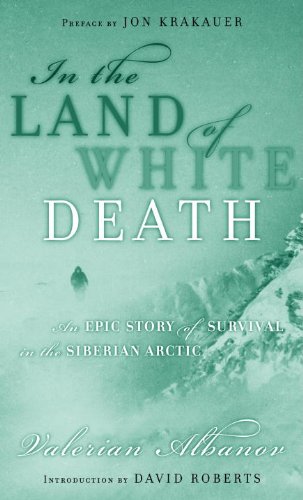Showing In the Land of White Death: An Epic Story of Survival in the Siberian Arctic by Valerian Albanov
No recommendations yet View on Amazon (paid link)
In 1912, six months after Robert Falcon Scott and four of his men came to grief in Antarctica, a thirty-two-year-old Russian navigator named Valerian Albanov embarked on an expedition that would prove even more disastrous. In search of new Arctic hunting grounds, Albanov's ship, the Saint Anna, was frozen fast in the pack ice of the treacherous Kara Sea-a misfortune grievously compounded by an incompetent commander, the absence of crucial nautical charts, insufficient fuel, and inadequate provisions that left the crew weak and debilitated by scurvy.
For nearly a year and a half, the twenty-five men and one woman aboard the Saint Anna endured terrible hardships and danger as the icebound ship drifted helplessly north. Convinced that the Saint Anna would never free herself from the ice, Albanov and thirteen crewmen left the ship in January 1914, hauling makeshift sledges and kayaks behind them across the frozen sea, hoping to reach the distant coast of Franz Josef Land. With only a shockingly inaccurate map to guide him, Albanov led his men on a 235-mile journey of continuous peril, enduring blizzards, disintegrating ice floes, attacks by polar bears and walrus, starvation, sickness, snowblindness, and mutiny. That any of the team survived is a wonder. That Albanov kept a diary of his ninety-day ordeal-a story that Jon Krakauer calls an "astounding, utterly compelling book," and David Roberts calls "as lean and taut as a good thriller"-is nearly miraculous.
First published in Russia in 1917, Albanov's narrative is here translated into English for the first time. Haunting, suspenseful, and told with gripping detail, In the Land of White Death can now rightfully take its place among the classic writings of Nansen, Scott, Cherry-Garrard, and Shackleton.